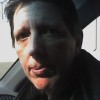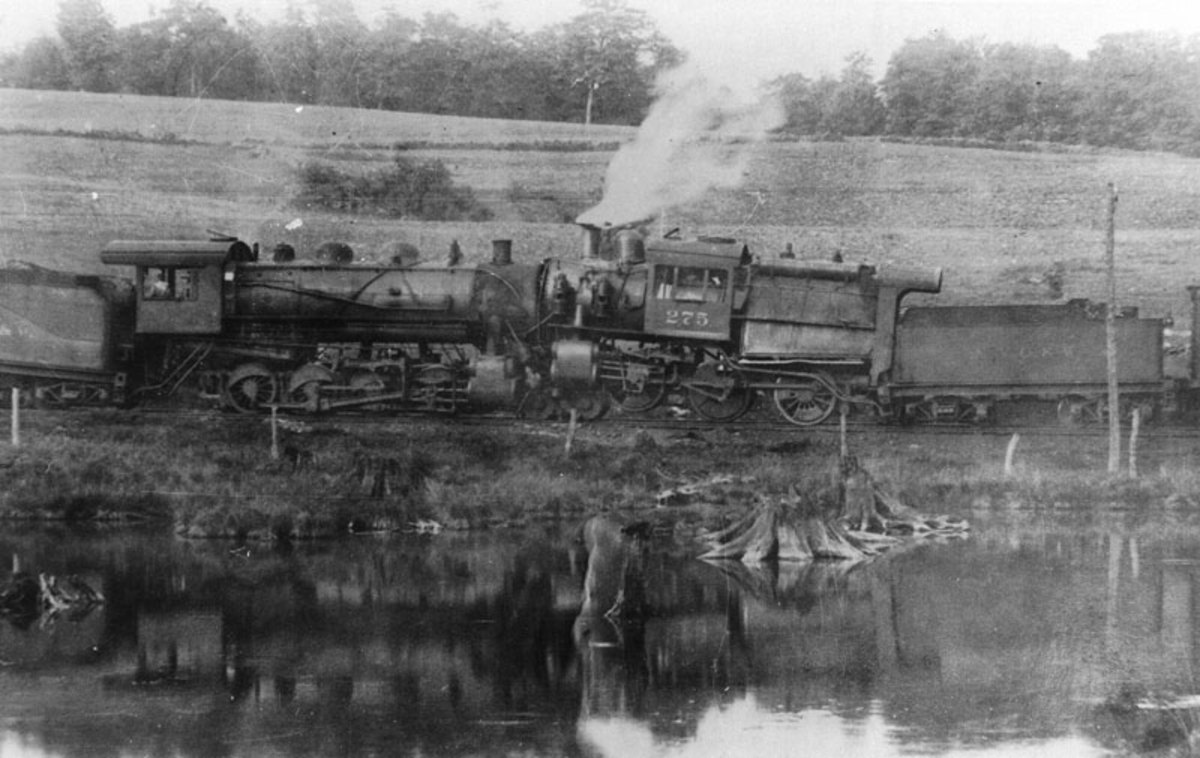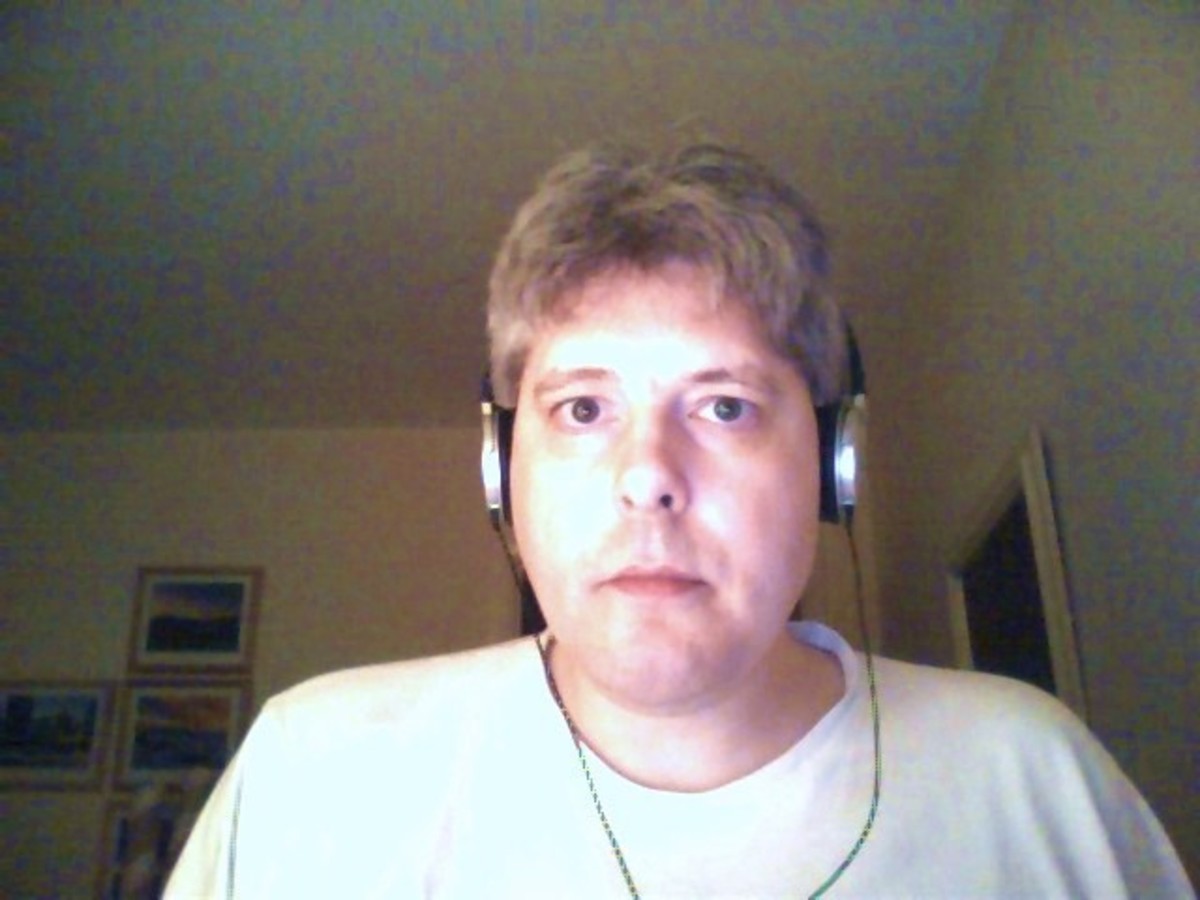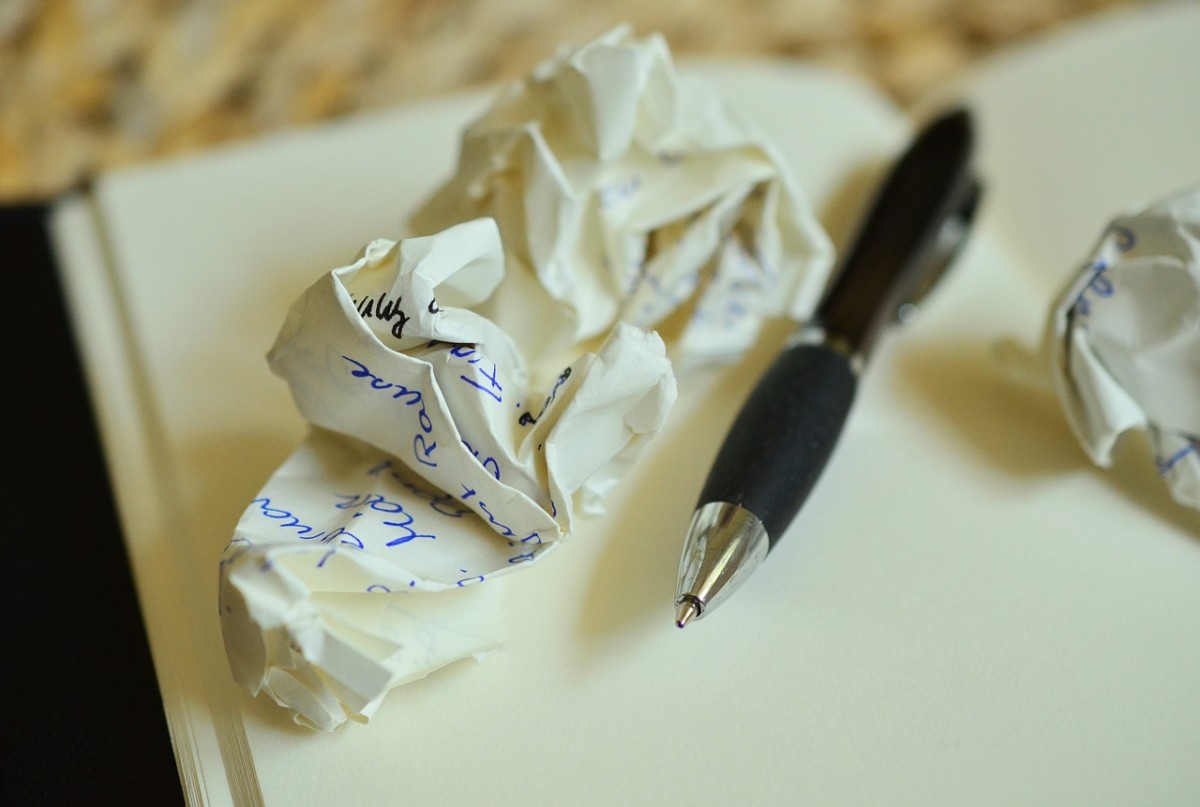Offline Journals Reduce Stress and Improve Your Writing
#13 of 100
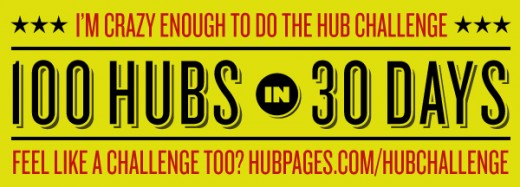
Why Wannabe Writers Benefit from Offline Personal Journal Writing
There are numerous reasons, but the best one is summed up in that old joke about Carnegie Hall. How do you get there? "Practice!"
You start out on a bad day when someone hurt your feelings, kicked you where it hurts the most, maybe said something like "You'll never be a Real Writer, you can't write your way out of a paper bag and you never finish anything let alone send it in anywhere. Why do you keep trying?" Or they sabotage you in sneakier ways -- like waiting in the kitchen listening to the sound of silence from the other room where you stare at the blank page, then as soon as the three hours of jitters pass and you got in the first sentence and the first hesitant keystrokes become a clatter, come in with a plate of cookies.
"I hate to see you try so hard and it always makes you so depressed when you can't write. I thought I'd bring in some cookies to cheer you up. I hope it's not that sci-fi stuff again, nobody reads that. Maybe you should start a good mystery or crime story. You know, you could make a lot of money writing for the tabloids if you did something about a UFO..."
Meanwhile, the opener to the great SF idea story is sitting there enigmatically introducing the first character and the Idea itself that was so great 45 seconds ago has just been slammed right out of your head by the need to defend the genre, your right to read it let alone write it and the allegedly vain hope that you will ever reach the ranks of people like Isaac Asimov. She sounds plausible, damnit, and you have to admit there were a lot of bitter nights when you never got past the first sentence.
And then it takes thirty years after that lady's dead to recognize that her actual interference had something to do with why you never finished a novel in high school. She cared so much. She baked cookies. How can you pick on someone who was just trying to be nice and trying to understand and cared so much?
Easy. She's dead and I'm a science fiction writer.
I didn't understand that little mind game my grandmother pulled until a few years ago. I thought she was the kindest, sweetest, most loving grandmother anyone had and I did not comprehend that she was also a Machiavellian genius capable of tying up anyone in her ideas of what they should be doing and driving home her view of reality against all physical evidence, with a deep passionate commitment to her ideas about life, the universe and how people should live. The best I can say about her now is that she was Well Meant.
But so was the Spanish Inquisition, according to the principal of the Catholic grade school I got incarcerated in. They did it because they honestly believed that torturing those people in this life and getting them to convert and confess would save them an eternity in Hell. That was scarier than bad guys who just come out and say "I'm going to take over the world because I've got this superweapon and I can do it. Gimme everything I want. Starting with that babe who turned me down for a date in junior high."
That guy is understandable and easily defeated on moral grounds. You know he's wrong, this stalker who got the cosmic bazooka is clearly a bad guy and actually takes pride in it. When someone Means Well, he or she is willing to do anything, anything at all to accomplish what they think is right. Atrocities fill our history because people Meant Well and the ones that do will go farther and be more ruthless than anyone else. There's no chance of a regret there.
But what about the person who really does think it's all for your own good and breaks up personal relationships and friendships that were supportive, cuts off activities that would be healthful because she believes you're undisabled, pushes to the point where you come to think that maybe it's not so bad and everyone else has that much trouble staying on their feet or walking any distance and that you should go out and do jobs you're completely unfit for -- and get fired from the first full time one because your body cannot move fast enough to do the job to a professional standard. Then repeat that over and over in various jobs because you got trained into believing you shouldn't complain and there are people far worse off who are missing limbs or blind.
Missing a limb would've been more fixable than having one shaped wrong. But in those times, ah, in those days having Birth Defects meant that families pretended the kid didn't exist. Usually sent the kid to an institution where it was a waste of time to educate him because he could never be independent and learn to make a living. Life in prison without parole and without any actual crime, without actually doing anything to deserve it other than existing and being Not Perfect, being below the standard of the human race. Throw in a near-Nazi in the household who believed in eugenics and improving the species and seriously proposed euthanasia for Birth Defects and you can see where that denial came from.
But finding out about it and breaking through any denial isn't as easy as all that.
Ask any recovered alcoholic how long it took them to notice how many jobs and spouses and friendships and family members they sacrificed to the drink while believing they didn't drink too much. Denial is firmly rooted in our society. I can't say whether it is for all societies. I truly think that anthropology has found very few things that remain true cross culturally.
For one thing, no given task, personality trait or quality gets universally labeled male or female -- if it's men's work somewhere, you can find a culture where it's women's work and they're equally shocked to see a guy doing it. Yet all societies do in some way create gender roles and assign them to the sexes, sometimes more than two because those societies accept that not everyone fits the dualistic mold.
So those are some personal reasons to have a private journal on your computer. I recommend text files, they're lightweight and don't have the distractions word processors have of either lag from your not having enough RAM to run Word or its ugly habit of trying to autocorrect all typos including the name of your first grade teacher, stopping you to have to remember it and put it in the dictionary and get it right every time. This is for you, about you. You don't need to worry about the typos or check grammar on it.
This is freewriting at its rawest and most personal.
It's getting to know you, deep down, and accept yourself for who, exactly who you are.
Because once you launch into a novel and put that puppy out for other people to read, you are dancing naked on the rooftops. Who you are and what you think about everything is going to be clear to a good many readers, others will make entertaining speculations about you that aren't true but might be insulting, and a few will by doing so luck into noticing every single thing you are embarrassed about in yourself or your prose. Thankfully most of them will go off into their own trips and not really get it about that grandmother and that anomalous relationship till you've resolved it and it cooled enough to write about it sympathetically.
She meant well and wasn't a bad person.
The good things about her were good and true too.
The way she did so much damage would make her a far more powerful villain or instigator for a plot conflict than any one-dimensional "I'm a thirteen year old stalker with a big gun" villain ever could be, and SF is a thinking genre. Anthropology is real science. Those same things that hurt so bad in my real life are my experience of what pain felt like. Of what rejection felt like, a deep unspoken personal rejection thousands of times more bitter than "We're sorry, but your story does not meet the needs of our publication at this time. Please submit again."
Those editors mean it.
They want you to submit again. They want you to read the publication first and get a feel for the flavor of stories they like and get closer to their flavor every time. They want to see your name in the slush pile repeatedly and remember it. When you get actual critical comments from an editor like "This is excellent but it reads more like the opening chapter of a novel than a short story. It hasn't got a real ending but it hooked my interest. Why not just continue it and write the novel" they mean that too.
Editors have a teaching streak a mile wide. Especially when it comes to getting into their magazine and becoming someone they can count on for a good story at fairly regular intervals that grabs readers and is well crafted. They all have the shared dream, often realized, of being the particular editor who found the Famous Writer and bought his/her first or early stories before anyone else knew they were that good. They're overworked lately and don't have as much time for it as they used to, but many of them include those checklist rejection slips and check them off when you send stories.
When you get one back and none of the checks are checked off but the editor wrote a two page analysis of your story and ended by asking for something specific like "Something this good, but more contemporary" this is a reason to sit down and do exactly what he wants because it's practically like getting commissioned to paint his dog. It will sell if you do that competently.
No one told me that as a college kid either.
But I kept journals when I could. They say that it takes writing a million words of crap to learn how to write well. The number varies, some writers give it as low as 100,000 but most will say a million words of crap. Daunting, when a http://www.nanowrimo.org novel is only 50,000 words. But if you have a personal journal and toss two to ten thousand words of personal reminisces into it every time someone hurts your feelings or anything bad happens in life, this whiny monstrosity will actually, over years, begin to get readable.
It will also do wonders for your personal self esteem and confidence.
There is a little trick that writers know and most readers don't.
My window on the world
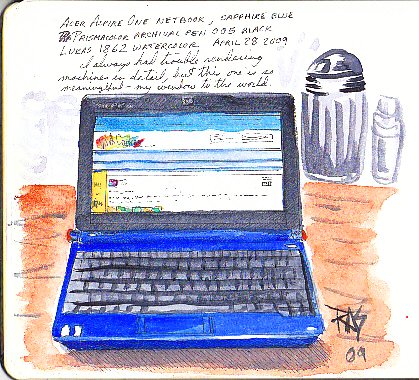
You have to like yourself, that's the one person you can't move away from.
First person is sympathetic. Per se. By definition. Any writing done in the first person is going to evoke some sympathy from the reader.
Even if I'm the reader, reading about myself, it sounds better and I'm more likely to take my side in it when I write about my ambiguous, intense feelings about my sabotaging grandmother. My deep sense of betrayal at recognizing how much that otherwise good, compassionate, sweet, gentle, rescuing woman managed to tie me up in knots every time I tried anything that would have actually been good for me or brought me closer to my own goals in life rather than the goals she had in mind for me -- which were completely impossible, unrealistic, never could happen in a million years because I do not have the capacity to do them was a tragedy.
Actually it was pathetic.
Pathos is when something nasty happens and it's no one's fault and it's just rotten. Yet for some reason people respect tragedy more, a tragic hero who makes some really dumb tragic flaw error and then gets a terrible comeuppance way out of proportion to the error gets more sympathy and respect, something that still bugs me. But it's true. I could look at it either way.
My tragic error was loving her and trying to please her and compromising my identity away in a thousand little ways till it was completely sandpapered away. Till the effects of doing what she wanted to make her happy led me to do that within a 13 year codependent relationship and change to the point of not even knowing who I was. Till I wound up after that broke up with nothing more to stand on as an affrimation than "I deserve to be married to someone who actually wants to be married to me."
And let go of the definitely tragic error of trying to hang onto someone who was sanely trying to leave a bad relationship.
I needed love too much and could not bear being that alone in the world because I'd been that personally rejected by every single member of my birth family. While there were and are many other issues involved, two of the biggest are my birth defects and my wanting to grow up to be a science fiction writer. A third is deep too - we were all extremes in the generation gap of the 1960s, I was a progressive science fiction writer who passionately believed in things now held in 2009 to be pretty normal mainstream ideals and they were rooted in 1950s conservatism, where they honestly thought black Americans should all be deported to Africa no matter how many generations they'd been Americans and some thought Hitler at least "tried to solve the Jewish Problem" and that working women ought to expect to have to screw their boss or supervisor to keep the job because only a hoor would become a Career Woman.
Throw in the religious differences and the break that came when I refused confirmation at eight because I understood all the dogma perfectly well and didn't believe in or agree with any of it, and you have reasons for people to hate each other murderously. They managed not to murder me. I managed not to murder them. But our philosophical and cultural differences were deeper than if we came from other countries -- and part of their view of life was that children did not have identities of their own. Weren't people. Were infinitely plastic and moldable, a blank slate you could write anything on.
They were mad because I wasn't who they told me to be. In every possible way, I was someone who wasn't who and what they wanted. They weren't just disappointed, they were disgusted and revolted and horrified. I was the alien, so alien to them a Chinese visitor made more sense.
That's a deep thing to have to work through and sort out. I'm not alone in it. Many lonely people have various conflicts with their families. Some families overcome those differences and stay close and care more about their loved ones than their ideals. Others ... don't. No holds barred when it comes to acculturating a child and making the child over into someone you can love... even against physical reality.
I was in the path of the tornado.
I did struggle to grow up sane and did win that one -- but not without a lot of struggle, because all my physical symptoms looked like the symptoms of various forms of mental illness. Some of these conditions weren't discovered till ten or fifteen years ago, were not even known then. Who'd heard of chronic fatigue, let alone the long list of neurological and immunological diseases that cause it? The obvious -- that a kid getting picked on all the time was suicidally depressed -- that's what the family doctor and everyone else thought was going on.
So I had to journal because I also doubted my sanity. I had to journal to prove to myself that I had a right to be who I am -- and found a few very affirming things out in the world outside the family that I hung onto like touchstones. The legal definition "not a danger to himself or others" became a biggie.
My becoming a science fiction writer or even wasting my life trying was not a physical danger to me or to anyone else. It may not have made them happy, it may have horrified them -- and in retrospect a lot of it was that my horribly progressive ideas would then maybe spread and convince other people that women/black people/gays and even disabled people should be treated with the same respect as white men -- that hit hard on some levels. I'm pretty sure at least some of them just did not want me to be able to express my ideas.
But in a country that allegedly had free speech being able to make a living sitting in a squashy armchair making up stories and convincing people the world of the future really would be a better place to live including all those left-out people often considered monsters, that's not a threat to self and others. It could even be considered a good thing to do with a life. Trying to do it and maybe dying along the way without giving up was worth doing. Becoming a science fiction writer was my only real defense against giving in and killing myself because in every way, people who said they loved me rejected me and wished I'd never been born.
Or came out and said so, to my face, whenever they got too stressed.
It hurt.
It wasn't as rare as those people made it out to be either. I watched it happen to all these abled, beautiful, physically perfect people brimming with talents and abilities and opportunities I never had, dreams that could be fulfilled crushed to nothing, and watched so many just knuckle under and march off into miserable lives doing what they hated most for a living, marrying someone they couldn't stand, picking on their kids. It scared me. While it was going on I was making that same terrible compromise without knowing how I was led into it, and have to say I wasted a lot of my life trying to please people who could never be pleased with me for who I really am.
It's tragic that it's such a universal story.
It's bogus that a disabled kid is worthless. I lived. I came to actually succeed first in finishing a novel, then in editing it and putting it into print. I did it in one of the worst periods of my life when that denial and the long brutal delay in seeking the help that does exist for disabled people left me bottoming out in a homeless shelter, where I wasn't allowed a phone line in my room for Internet access because then all the rest would want one to just spend time talking to their friends and family in the community. But they weren't all villains. One of the volunteers at the shelter fronted me the $99 to put Raven Dance in print, refusing to treat it as a loan, she did it as a gift to get me started and said to pass it on when I became prosperous.
I do in various ways.
Not literally because I never met a writer who needed the cost of first print on demand publication and was just that short of survival, but I pass it on in various ways to various creative people seeking their own dreams. It doesn't have to be limited to writers. I give people art supplies or help them out in trouble or help them find jobs or whatnot when it's in reach and that's just part of my world view. I've been on the underside of the rock and know what that's like.
By rewriting my story over and over to myself, I stopped believing I was that worthless and stopped believing I was undisabled and just "caught something" or had an "accident" every time my body failed. I was able to track the bitter reality that if I try to keep up, I'll do it for a while -- a few days, maybe even weeks -- and then fall down hard and wind up so sick I need bed rest for weeks or months or years to recover, always winding up just depending on whoever would take me in. Who were often codependent, because codependents will take in someone in need and then get really upset when that does not solve the problem for good -- when the problem's still there half a year later and the person hasn't gotten any better.
Some things, I'll never get better. I've learned to manage them and get more out of life than I would ever have if I didn't have my medications and the treatment I needed. Surgery knocked out the tumors and solved some other problems permanently, but most of it is stuff I need to work around for the rest of my life. Machines help. Every convenience that gets flamed as making people too lazy makes life more possible and more independent for me.
Microwave ovens mean sometimes I can get my own food, on good days. Power chairs could put me on a mobility basis with other people at least as long as my energy for driving holds out, it'll never make it possible for me to get up at the same time every morning and go to bed at the same time every night but it'd let me get out of the house. Central Heat and Air increase the number of good days I have per year -- I get sick in either temperature extreme and get to where I can't get out of bed. Living in the right climate, modern travel, can get me more good days in a year -- more good novelwriting days and writing-/about-art days that I can add to the number of happy hobbyists and independent artists in the world who can walk away from bad jobs and have something to do that they love instead.
The Internet means I do have a full range social life from casual just-met acquaintances to close friends to true family, my adopted daughter, wonderful son in law, two grandkids, two dogs and their cat and my cat are a real family -- warm and supporting in ways that I had never known till I moved in with them.
So this does have a happy ending. The story in my journal goes on into the "and he lived a long time writing many cool things, novels and art instruction and philosophical rambles in the heart of his new loving family with an adorable five year old girl pestering him to sharpen her pencils, where he has become the Grandpa who Has All The Tools" and after the happy ending there are all these far less dramatic sequels going on.
I still need to get a SFWA card. I still want to win a Hugo Award someday. I still want to get paid a pro-level advance and it wouldn't hurt to someday have Stephen King sized readership and income. To many people Elvis is The King. To me that's Stephen in Maine, who has too many fans so I won't write to him and bug him till I've gotten enough good body of work in print that I'm just banging into him at some writing thing to talk shop talk or listen to him go on about Maine and his interests. He's probably even sick of shop talk by now. It's cool, he wrote "On Writing" and "Misery" and "The Dark Half" and that all helped me keep going through some very dark times.
The story's not over but some of the ugly parts of it are.
The journal went way, way over a million lousy words and I honestly believe it was retelling my story to myself till I understood it that gave me the ability to tell these stories intelligibly in this Hub. To shorten it and smooth it, get to the point, make the anecdotes amusing, craft a sentence decently. It was in my journal that I understood the Cookie Interruption Trick and many other types of personal sabotage that kept me zoned out and living like a zombie throughout high school and junior college, never quite keeping up well enough and never doing anything that mattered to me.
If you do wind up sitting on a wellspring of shame because of some common as crabgrass family conflict or personal tragedy like having an alcoholic in the family or being one, or being abused in an emotional way that doesn't get child services banging down the door, or breaking your heart on falling in love with the wrong person, or not understanding something basic about your life that must be accepted because it's real... then a journal will eventually wear down all those externally imposed pressures. The truth will come out in it. The patterns will emerge.
Some of the people who can't make themselves get out of bed in the morning or care about anything are in that state because of emotional wounds that festered and went unhealed.
Writers though, have to go one step beyond getting healthy and normal. We have to get abnormally healthy, because horror writers are one of the top three professions at risk for suicide along with dentists and therapists. Therapists have social pressure from their clients being the bulk of human beings they contact every day, most of their time is spent struggling with other people's mental illness and it is socially catching. Dentists go through all the expense and struggle and trouble that doctors do in order to gain their license and then get laughed at for it and never taken seriously, while most of their patients hate them and would rather do anything else than use their services or pay for them once they have. Dentists are the most unappreciated medical professionals in this culture.
Horror writers have to look at the dark side of human nature and the cruel things that good people do which are so often Meant Well and so often cause more harm than actual malice, or the malicious who think they're just being petty or of course that the people they do it to don't deserve anything better or aren't people. Horror writers have to accept that human beings are that nasty, that even the best human beings are that nasty and sometimes do mean it -- sometimes they really are bent on driving someone to suicide. Thankfully the number of genuinely evil people I've known in this life are few, but they're real too -- and the seed of it is there in anyone, even the gentlest saint.
Horror writers do things like write it from the killer's point of view and understand the killer in themselves, remember what it would've felt like to kill someone at fifteen or seventeen and think it would be cool. Okay, for me that stage of mentality came at twelve, I was fascinated with what it would be like to kill someone. But it's a part of me, and the only reason I outgrew it faster was a chance encounter with a charismatic Quaker pacifist at fourteen and the whole issue of the Vietnam War -- purely some chance events. I can write a psychokiller by going back to the murderously angry twelve year old and writing him up through a different set of beliefs and there he is -- real as blazes -- and the villain, even the one who is one, is also someone I might have been.
That kind of introspection is not easy.
It takes a lot of thought and a lot of work to consciously think about every moral and ethical decision in life and come to a point of looking at it on all sides -- and then stand back and take sides and be myself and pick a direction. To stand firm on my principles and believe in them, knowing how horribly easy it would be to twist them into something that could cause atrocity. Think about how Christ would feel if some time traveler told him about the Crusades -- the person who was saying "be nice to people" and "be good to your neighbors even if they're weird and have a different culture" finding out that millions of people were fighting to the death over trying to visit the place he got born and doing it in his name.
Would that ancient rabbi have folded it up and quit teaching? Or bit the bullet and gone on doing what he did because that was who he was and those stories mattered to him and needed to be told? Good question, isn't it?
That's the kind of questions horror writers and all writers have to ask themselves -- and rehearsing in a personal journal where you can get it sorted out is a good way to get practice at the ancient craft of telling stories. Plumbers, piemakers, cab drivers, landscapers all get to live unexamined lives if they were lucky enough to grow up with reasonably happy families and marry someone similar enough culturally that they made sense and raise kids that were healthy. It's not necessary for everyone to not only dive in their navel but examine their own entrails looking for the future of the human race.
It sure is for writers though. And so is being open for the ugly surprises, like recognizing what a different course my life would've taken if I'd up and left at 18 to move to California instead of going to college, discovered the disabilities in a rough ride of trial and error, and settled into writing novels instead of rehearsing by playing Dungeons and Dragons. I majored in D&D on my first round at college because that fictional world was a lot saner than the one where I couldn't make it to class because the weather was too bad and flunked out on campus size.
And in the long run it didn't hurt to play D&D a lot either and become a good gamemaster, it taught me how to run a plot that didn't send the characters to sleep with boredom, or looking for popcorn to throw at me. The silly episodes and the funny bit are what keeps the great dark plot machine going and they often carry the point better than the drama -- but I learned pacing on a live audience and to this day it's helped.
So I had a hard life and some bad luck and still survived it. The first fifty years of my life would not make a good book because they'd make too many good books and have too many topics, but I've finally gotten into the good part where I can live with only an average person's amount of trouble in life. I have time to write Hubs and art articles and good novels and the next milestone is very close.
If you want to be a good writer, keep a personal journal and be honest with yourself in it. You'll think better of yourself as you get better at telling the story and eventually get so good at telling stories that your fiction will not choke you on the rough draft being so horrible -- that's the other thing to get, that any bad story can become a good one by being told enough times and edited. How you edit is your go.
I like to do it by starting over at the beginning and writing it again from the same idea, but that's me, and others have less drastic methods. But I got to where I can throw out fifty or a hundred thousand words as a rough draft and enjoy writing the next 100k more than I would picking over them for the good bits and stitching them together, that's just method. A million words of bad whiny personal retrospective will prepare you to write anything you want!
